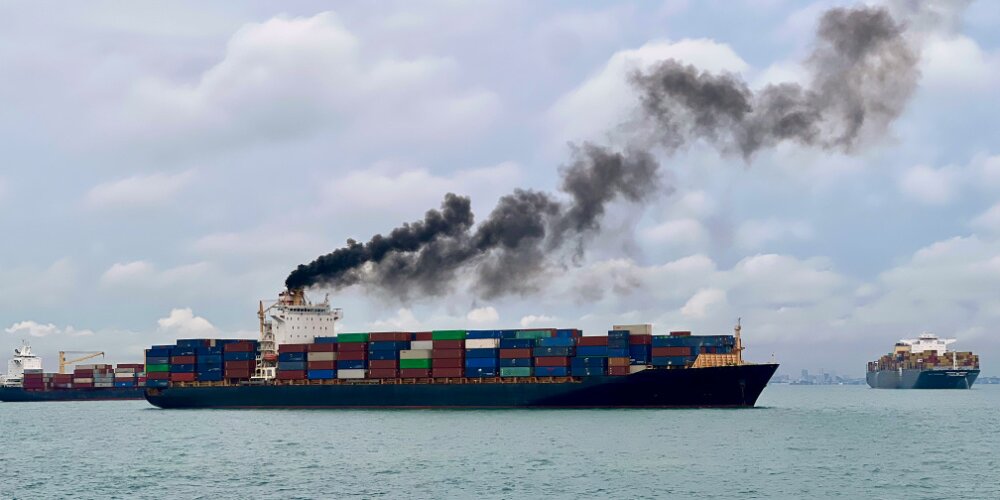Browse our services
Explore how Brookes Bell can help you
Find an expert
Meet our team, find and expert and connect
Contact us
Get in touch, we're here to help

A total of 47 IMO member states in conjunction with the International Chamber of Shipping have submitted a text to the IMO in support of a global greenhouse gas (GHG) emissions pricing mechanism.
The mechanism - which would act as a levy for shipping - would see ships pay an annual levy per ‘tonne of CO2-equivalent emissions’. The proceeds of the levy would be placed into a fund to support the development of zero carbon fuels in shipping.
The text from the 47 countries and the International Chamber of Shipping was submitted to the Working Group on Reduction of GHG Emissions from Ships (ISW-GHG).
It is expected that the submitted text - which includes draft wording for MARPOL annex VI amendments - will be considered at the 18th meeting of the ISW-GHG ahead of a meeting of the Marine Environment Protection Committee (MEPC 83).
The ultimate aim of the levy is to support the adoption of more expensive low-carbon fuels in shipping by reducing the price gap between the cheaper, more polluting bunker fuels more commonly used by ships at present.
Commenting on the text, Guy Platten, general secretary of the International Chamber of Shipping, said:
“The industry fully supports the adoption by IMO of a GHG pricing mechanism for global application to shipping. The joint text put forward by this broad coalition is a pragmatic solution and the most effective way to incentivise a rapid energy transition in shipping to achieve the agreed IMO goal of net-zero emissions by or close to 2050.
We are very pleased that such a large and diverse group of nations now firmly supports a common approach to maritime carbon charging. This proposed joint text has been hard fought and is broadly based on ideas which ICS has been advocating for the past ten years.
While a large number of governments now support a universal flat rate GHG contribution by ships - or something similar - a minority of governments continue to have concerns. Working in co-operation with all IMO Member States we will do our best to allay such concerns during the final stages of these critical negotiations about regulatory text”.
Then speak to Brookes Bell today. Our marine engineers are experienced in all aspects of vessel operations and best practices, including detailed knowledge of the MARPOL regulations and their relation to air pollution from ships.
For more maritime industry insights, news and information, read the Brookes Bell News and Knowledge Hub…
Research Indicates That 95% of Shipping’s Zero Emission Fuel Projects Still on the ‘Drawing Board’ | European Maritime Agencies to Use Drones to Monitor Shipping Sulphur Emissions | ‘Exhaust Sucking’ Barges Could Help Reduce Emissions at Ports